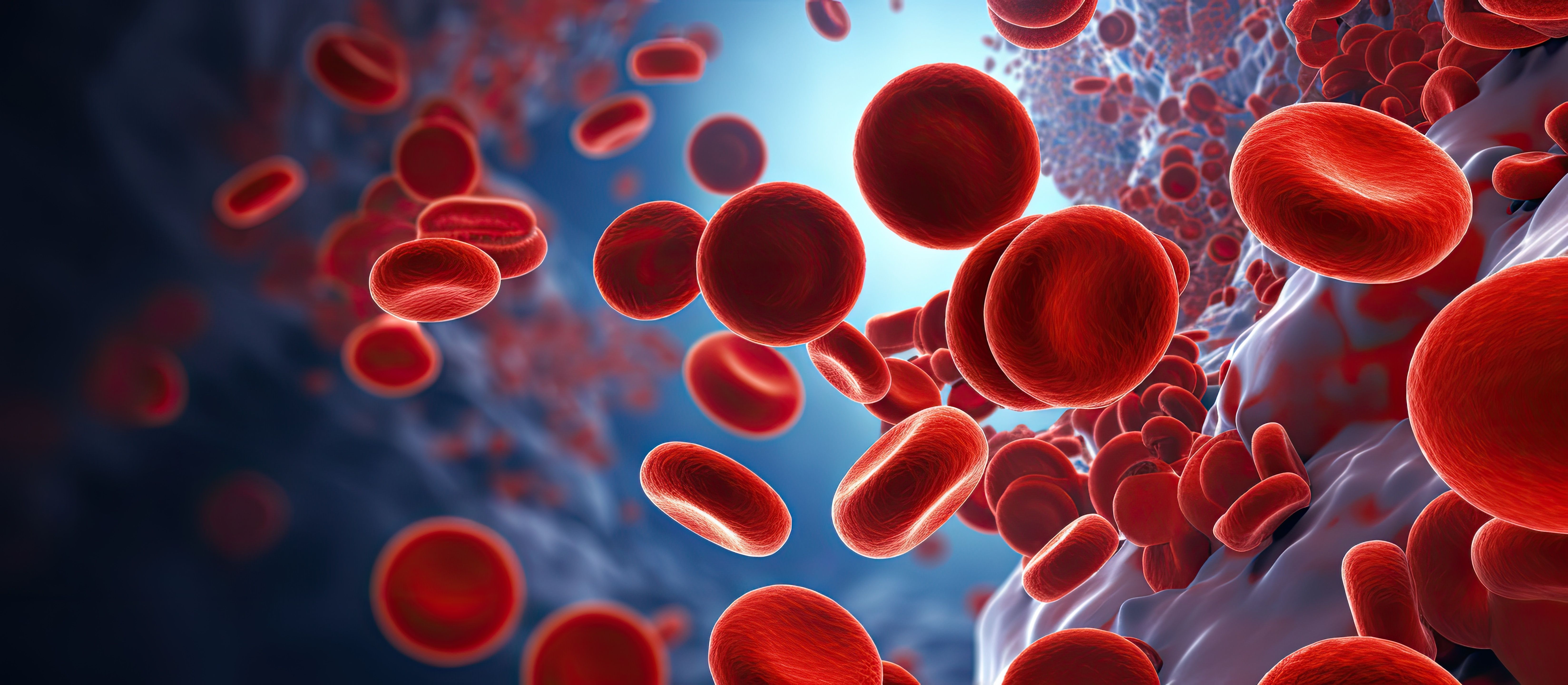SL-172154 Gains FDA Orphan Drug Designation in Acute Myeloid Leukemia
SL-172154 is being studied in a phase 1a/1b study in acute myeloid leukemia and higher-risk myelodysplastic syndrome, as well as other phase 1 studies in platinum-resistant ovarian cancer.

- An orphan drug designation has been granted to SL-172154 for treating acute myeloid leukemia (AML).
- A phase 1a/1b trial is ongoing, evaluating the agent as a monotherapy and in combination with azacitidine with or without venetoclax (Venclexta) in patients with AML and higher-risk myelodysplastic syndrome (MDS).
- Additional findings from the study are expected to be announced in the middle of 2024.
The FDA granted an orphan drug designation to SL-172154 for the potential treatment of patients with AML, according to Shattuck Labs, Inc.1
SL-172154 is an investigational ARC fusion protein. The agent works to inhibit the checkpoint interaction of CD47/SIRPα, as well as activate the CD40 costimulatory receptor to boost antitumor immune response in patients with advanced cancer.
A phase 1a/1b study (NCT05275439) is currently evaluating SL-172154 alone and in combination with azacitidine with or without venetoclax in patients with AML and higher-risk MDS.
Microscopic images of red blood cells activated platelets and white blood cells are showcased in the photographs as a result of leukemia: © AkuAku - stock.adobe.com

“[Patients with] AML have few options for treatment and a poor prognosis. [The] FDA’s decision to grant orphan drug designation to SL-172154 highlights the urgent need for new treatment options,” said Taylor Schreiber, MD, PhD, chief executive officer of Shattuck Labs, in a press release. “This is an important first step in our progression to later-stage clinical studies, and we look forward to presenting additional data from the phase 1B dose expansion clinical trial of SL-172154 with azacitidine in [patients with] frontline higher-risk myelodysplastic syndromes and TP53-mutated AML during a poster presentation at the 2024 European Hematology Association Congress.”
In the phase 1a portion of the study, the dose-escalation part, patients needed to have relapsed/refractory AML or higher-risk MDS and previously received 1 to 4 prior therapies.2 To be included in this part of the study, patients with MDS were required to have intermediate-, high-, or very high-risk disease per the International Prognostic Scoring System. In dose-expansion portion in phase 1b, patients with previously untreated AML with TP53 mutations and previously untreated higher-risk MDS were enrolled.
SL-172154 was given via intravenous (IV) infusion on days 1, 8, 15, and 22 of each 28-day cycle during phase 1a/b, and azacitidine was given at a dose of 75 mg/m2 IV or subcutaneously once a day on days 1 through 7 or using a 5-2-2 dosing schedule.
When the dose-escalation portion was complete, investigators selected 3 mg/kg to be the dose of SL-172154 used in the dose-expansion portion.
Safety and determining the recommended phase 2 dose of the combination served as primary end points of the study. Secondary end points consisted of preliminary antitumor activity and pharmacokinetics of SL-172154 when given as a monotherapy and combined with other agents.
Data from the phase 1b dose-expansion portion of the study showed in the safety population of 14 patients, 11 of whom had secondary AML, the overall response rate (ORR) was 36%, and 2 patients achieved a complete response (CR).3 Another patient achieved a CR with incomplete hematologic recovery (CRi). The median time to CR was 8.7 weeks. Additionally, 2 patients achieved a partial response (PR), and no responders progressed as of the data cutoff date.
Four of the responders, including 1 with a CR, 1 with CRi, and 2 with PRs, were taken to hematopoietic cell transplantation. Further, the median duration of response and overall survival have not been reached.
Looking at safety, SL-172154 had an acceptable safety profile. The most common treatment-emergent adverse events (TEAEs) were infusion-related reactions (IRRs), which were reported in 18 patients (46%). All IRRs, except 2 which were grade 3, were grade 1 and 2. Other TEAEs included fatigue (13%) and hypokalemia (10%).
It is expected that additional findings from this portion of the study looking at SL-172154 given with azacitidine in patients with previously untreated TP53-mutated AML and higher-risk MDS will be released in the middle of 2024.
In addition to this trial, SL-172154 is also being evaluated as monotherapy (NCT04406623) and in combination with pegylated liposomal doxorubicin or mirvetuximab soravtansine (Elahere; NCT05483933) in phase 1 studies for the treatment of patients with platinum-resistant ovarian cancer.1
REFERENCES:
Shattuck Labs announces orphan drug designation granted by the U.S. Food and Drug Administration (FDA) for SL-172154 for the treatment of acute myeloid leukemia (AML). News release. Shattuck Labs, Inc. June 10, 2024. Accessed June 11, 2024. https://tinyurl.com/pjrht82z
Phase 1 study of Shattuck Labs (SL)-172154 in subjects with MDS or AML. ClinicalTrials.gov. Updated March 26, 2024. Accessed June 11, 2024. https://classic.clinicaltrials.gov/ct2/show/NCT05275439
Shattuck Labs to present additional data from the phase 1B dose expansion clinical trial of SL-172154 with azacitidine (AZA) in frontline higher-risk myelodysplastic syndromes (HR-MDS) and TP53 mutant (TP53m) acute myeloid leukemia (AML) patients at the european hematology association (EHA) 2024 congress. News release. May 14, 2024. June 11, 2024.https://tinyurl.com/48m7fz2z
COMMANDS Trial Demonstrates Benefit Across Mutations in RS-Positive LR-MDS
October 23rd 2024During a Case-Based Roundtable® event, Yazan Madanat, MD, discussed a the patient population and outcomes of the COMMANDS trial of luspatercept in myelodysplastic syndrome in the first article of a 2-part series.
Read More
Lunning Evaluates CAR T-Cell Therapy for ASCT-Eligible and Ineligible DLBCL
September 22nd 2024During a Case-Based Roundtable® event, Matthew A. Lunning, DO, discussed the updated trial data for 2 chimeric antigen receptor T-cell therapies in patients with diffuse large B-cell lymphoma.
Read More